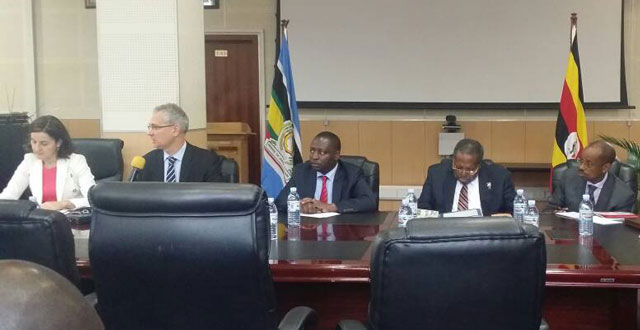
The International Monetary Fund (IMF) expects Uganda’s gross domestic product growth to record anywhere between 3.5%-4% in FY2016/17, lower than 5% that had earlier been projected.
This was announced on Tuesday by Axel Schimmelpfennig, the head of IMF mission that visited Kampala, Uganda from May 2-15, 2017 to conduct the 2017 Article IV consultation and discussions on the 8th review under the Policy Support Instrument (PSI).
Drought that affected agricultural output in most parts of the country is largely to blame for the anticipated slow growth for this financial year.
Uganda Bureau of Statistics figures indicates that the economy contracted by 0.1% in the first quarter of this year before expanding (to grow) at 0.8% in the second quarter of this financial year.
Apart from drought, instability in Uganda’s largest export market, South Sudan, the high cost of credit and limited demand among other factors are behind this slow growth.
However, the IMF Mission Chief said macroeconomic policy implementation under the PSI has been broadly satisfactory despite some slippages.
“The authorities have made progress on structural reforms though more is needed in several areas,” he said.
Schimmelpfennig was among other polices referring to the smooth implementation of the central bank’s Inflation Targeting Lite (ITL), adopted in 2011 to fight inflation that had jumped to 30%, the highest since 1993.
ITL has kept inflation (core) within the central bank’s limits of 5-10% for the past five years.
Going forward, the IMF team, said infrastructure and oil sector investment would lead to a recovery of growth to over 6% in the next three to four years.
Schimmelpfennig said the IMF Executive Board would discuss Uganda in detail come early July this year.
 The Independent Uganda: You get the Truth we Pay the Price
The Independent Uganda: You get the Truth we Pay the Price


